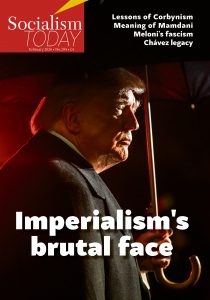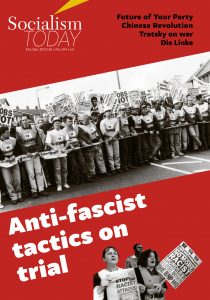
In November last year the Trump administration published its National Security Strategy of the United States of America. Hard on its heels, as 2026 dawned, the kidnapping of Venezuelan President Nicolás Maduro and his wife by US forces were a graphic demonstration of Trump’s ‘security strategy’ in action. This has been swiftly followed by the ramping up of Trump’s demands for the US to take control of Greenland.
Publishing National Security Strategy documents is not peculiar to Trump. Almost a quarter of a century earlier, in September 2002, the administration of a previous Republican President, George W Bush, produced his version. Comparing the differences between the two shows the gulf between US imperialism and the geopolitical context within which it operates, then and now.
Read more